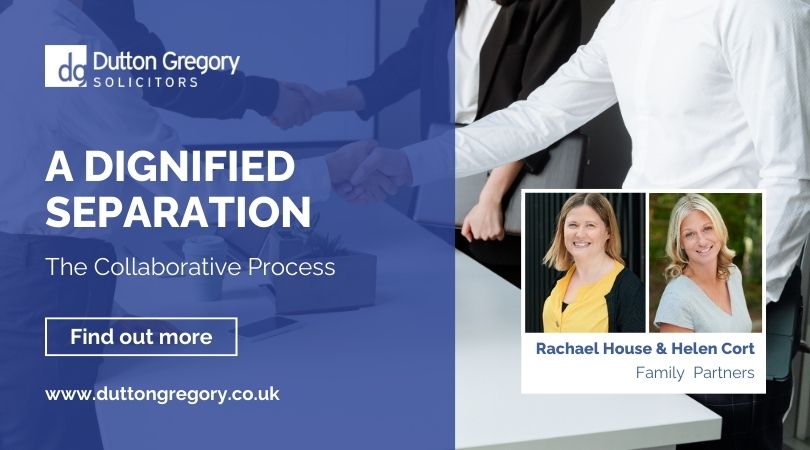Believe it or not, a significant number of people who separate do not want a bitter fight with their spouse/partner and want to try and resolve matters in an amicable and constructive manner. In this article, Family Law Specialists Rachael House and Helen Cort, explain how, whatever the desired outcome, there is always the opportunity for discussion and settlement rather than going to Court.
The modern approach to cases of separation and divorce is getting a couple to talk to each other and negotiate the way to move forward. In fact, the Family Court now has the power to adjourn hearings to essentially compel parties to attend Non-Court Dispute Resolution ('NCDR'). If one party refuses to engage with the other, they could potentially find the Court makes a costs order against them.
The combination of the Court’s new powers, together with them being overworked and underfunded, means it has never been more important for separated couples to consider NCDR, and the 'Collaborative Process'.
The Collaborative Process has a specific framework that helps couples reach agreements much more quickly than court process with the support of qualified and experienced professionals. The process is not just for those who need to divide assets as part of a separation, divorce or dissolution of a civil partnership, but is also suitable for issues concerning children.
Getting Started
To embark upon the process, each spouse/partner needs to appoint their own lawyer who has undergone specialist training to be able to work in this unique way. Local collaboratively trained lawyers can be found here: https://resolution.org.uk/find-a-law-professional/.
In Collaborative Law, everyone meets together to work things out face-to-face. This means each party has their solicitor by their side throughout the process to provide support and advice. There aren't any traditional letters going back and forth between lawyers, no misunderstandings and additional specialists such as a financial advisers, accountants or family consultants, can be brought into meetings when needed to assist with matters including pensions, investments, parenting, communication and emotional support.
At the beginning, an agreement (known as the Participation Agreement) is signed committing all parties to try to resolve the issues without going to Court. The signing of the Participation Agreement prevents that team from representing you if the case goes to Court, and means that everyone is committed to working together to find the best solutions.
An Anchor Statement (also known as an “Aspiration Statement”) which sets out parties' hopes for the Collaborative Process, such as fairness and mutual respect of the family post-separation, will also be prepared.
The Process
At the first meeting the couple will both sign agreements, share objectives, plan the agenda and learn what needs to be prepared (gathering financial documentation, for example) for the next meeting.
Subsequent meetings will deal with priorities and concerns using the information gathered and the support of the team to resolve specific matters, including short and long-term financial matters.
The couple is always in control of the timetable and the number of meetings that take place.
At the final meeting, documents detailing an agreement will be signed, and logistics concerning implementation of any settlement will be looked at. The final meeting often brings mixed emotions as it is the end of a deeply emotional process and brings closure in order to move on to the next chapter of the couple's lives.
The Benefits
Whilst the process can bring out feelings of both sadness and joy, it also brings feelings of a great sense of achievement and empowerment because the decision-making has been retained by the two parties, rather than left to a judge in court.
We find that those who have gone through the Collaborative Process maintain a dignified relationship going forward long after the lawyers and additional specialists have stepped away. This is particularly important where there are children as it sets the groundwork for being able to move forward as a family albeit after separation.
We know there will always be situations where court is unavoidable. However, we hope to raise awareness that going to court to resolve your issues is fraught with risk as to the uncertainty of outcome, significant delay, cost and lack of privacy. This makes the option of the Collaborative Process worth exploring with us.
Rachael House and Helen Cort, are both experienced Collaborative Law Practitioners at Dutton Gregory Solicitors who can advise across our offices in Woking, Winchester, Chandler’s Ford and Bournemouth. We would be happy to help guide you as to whether the Collaborative Process is a suitable option for you.








